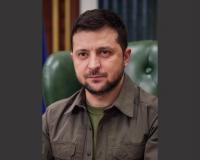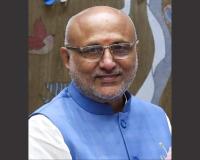India Will Never Compromise on Farmers' Interests, Says PM Modi at M.S. Swaminathan Centenary Conference

New Delhi, August 7 – Prime Minister Narendra Modi reaffirmed his government's unwavering commitment to protecting the rights and welfare of farmers, fishermen, and livestock owners, emphasizing that these communities are a top priority for the nation. Addressing the M.S. Swaminathan Centenary International Conference held at ICAR Pusa in New Delhi, the Prime Minister declared that he is personally willing to pay any price to safeguard their interests, and reiterated that India will never compromise when it comes to the welfare of its food providers.
Speaking at the event, Modi paid tribute to the late Professor M.S. Swaminathan for his visionary contributions that laid the foundation for India’s agricultural self-reliance and sustainability. He highlighted Swaminathan’s belief that science should not only be about discovery but also about delivery. The Prime Minister noted that Swaminathan’s research played a pivotal role in introducing modern agricultural techniques to Indian farmers, and his ideas continue to influence the country's agricultural policies and scientific direction.
As per agency report, Modi recalled that Swaminathan's legacy went beyond increasing crop yields. He championed concepts such as biodiversity and bio-happiness, which empowered local communities and aimed to bring about holistic development. According to the Prime Minister, Swaminathan strongly believed that biodiversity could bring meaningful change in the lives of local populations.
To honor the memory of the father of India’s Green Revolution, the government has instituted the “M.S. Swaminathan Award for Food and Peace,” which will be conferred on scientists from developing nations who have made significant contributions to food security. The first recipient of this award is a professor from Nigeria.
Highlighting India’s growing prominence in global agricultural production, Modi stated that the country now ranks among the top producers of rice, wheat, cotton, vegetables, and fish. He also noted that the production of crops like soybean, groundnut, and mustard has reached record levels, crediting these achievements to the hard work of farmers and the government's farmer-centric policies.
The Prime Minister detailed several key initiatives such as the PM-Kisan Samman Nidhi, PM-SAMPADA Yojana, and the recently launched PM Dhan-Dhanya Yojana, which aim to enhance the economic well-being of farmers. These efforts, he said, are part of a broader mission to make Indian agriculture self-sufficient and profitable.
Modi also urged scientists to focus not only on food security but also on nutritional security, calling for increased research in natural farming, crop diversification, and climate-resilient crop varieties. He emphasized the importance of integrating modern technologies such as artificial intelligence and machine learning into the agricultural sector.
Referring to India’s heritage of traditional farming knowledge, the Prime Minister stressed the need to combine it with modern science to develop a holistic agricultural system. He encouraged young scientists and entrepreneurs to innovate for the benefit of farmers and lead India towards becoming a global leader in green production.
Concluding his address, Modi said that bestowing the Bharat Ratna on Dr. M.S. Swaminathan was a matter of pride for the government, and expressed confidence that his visionary ideas would continue to guide India's agricultural policies for decades to come.





